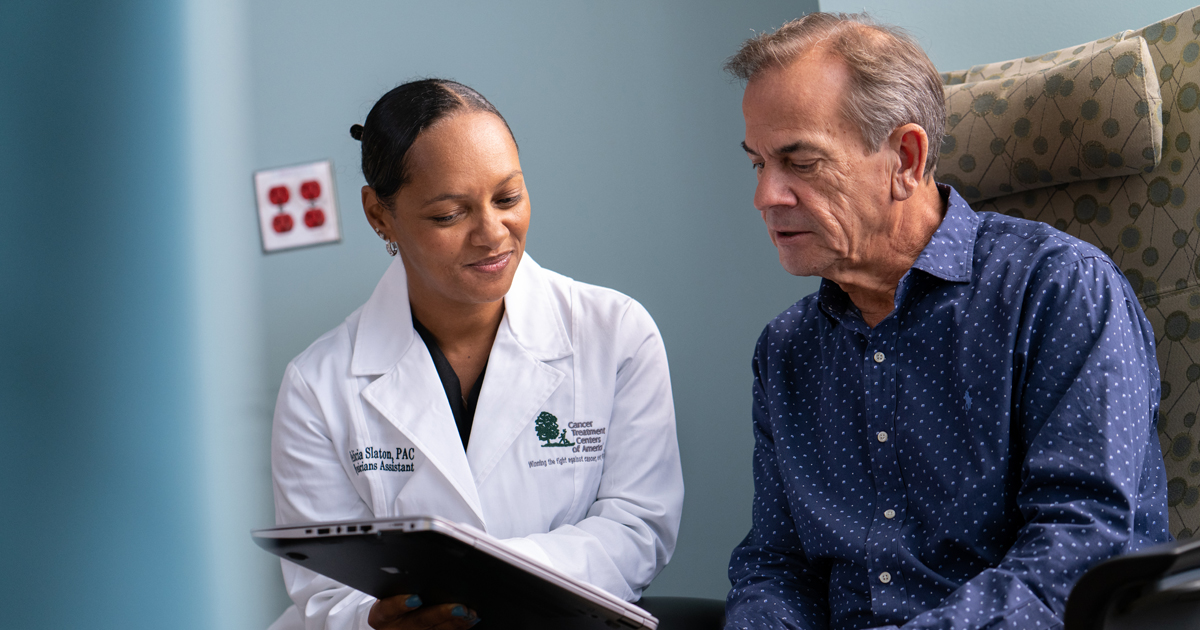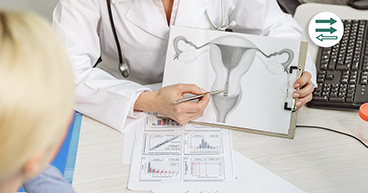
For many patients and caregivers, cancer is a mystery. Where did it come from, and why is it so hard to treat? It was gone, but now it’s back again—how can that be? For many, the search for answers may lead to facts that help solve some of the mysteries of cancer and help them make confident decisions on treatments and care. For others, research may lead to assumptions, misconceptions and myths that may have devastating consequences. To help resolve some of the confusion, the CancerCenter360 blog developed an occasional series, called Busting Myths. This compilation of myth-busting blogs, previewed below, is designed to help break through some of the misconceptions about cancer and cancer treatment.
Myth: Cancer is just one disease
Around 400 B.C., Hippocrates theorized that cancer was a single disease that would not fully go away, in most cases, even after it was surgically removed. That’s why, for centuries after the scholar’s death, cancer often went untreated for fear that interventions would do more harm to the patient than good. Much has changed since then, thanks to advances made in the last century—especially in the area of precision medicine in the last two decades. Yet despite new evidence to the contrary, some people today still believe that cancer is just one disease. What research has shown is that cancer is many diseases, each with its own characteristics, risk factors, causes and treatments.
Three dangerous myths about cancer and cancer treatment
A cancer diagnosis often triggers a rollercoaster of ups and downs, dread and optimism, fear and empowerment. Adding to the distress is the difficult task of gathering information to make an evidence-informed decision on a treatment plan. It is natural for a patient to develop erroneous beliefs about cancer and cancer treatment while missing out on important new insights that research shows may improve treatment outcomes. Eugene Ahn, MD, Medical Oncologist at our Chicago hospital, addresses three myths that are not only incorrect, but also may harm a patient’s chances for thriving after a cancer diagnosis.
If radiation causes cancer, how can it be used to treat cancer?
Radiation is everywhere. Ultraviolet light streams down from the sun. Radon may seep from the cracks in our basements. Nuclear energy keeps the lights on in millions of homes across the world. X-rays and MRIs are used to help diagnose injury and disease. The human body is bombarded with low doses of ionizing and non-ionizing radiation throughout the day, from sources of heat and light to waves from cell phones and microwaves. “Our body has the ability to recover from radiation damage,” says Anderson Bauer, MD, DABR, Radiation Oncologist at our Phoenix hospital. “If it didn’t, we wouldn’t have made it as a species this far in time.” In high or sustained doses, however, radiation may be both damaging and devastating. So how can something so potentially lethal be used to treat cancer? “We get that question all the time,” Dr. Bauer says.
Can hyperbaric oxygen treat cancer?
Oxygen is one of life's essential ingredients. "Every cell in our body requires oxygen to survive," says Wissam Jaber, MD, Director of Interventional Pulmonary Medicine at our Phoenix hospital. "We are built to consume oxygen." Cancer cells' relationship with oxygen is a bit more complicated, and that realization has led to decades of research into whether oxygen is good for cancer or bad for it. The answers are still not definitive, but some have used the unknowns to fuel unsupported claims that certain types of oxygen therapies, including hyperbaric oxygen therapy, can cure cancer.
Five common chemotherapy myths
If you think you know all about chemotherapy, you may be surprised to hear that it no longer automatically causes severe nausea and vomiting. In fact, medical advances over the years have helped lessen chemotherapy’s impact on the body in many ways. “Chemotherapy has a very bad rap,” says Dennis Citrin, MB ChB, PhD, Medical Oncologist at our Chicago hospital. “While the cancer treatment itself has evolved for the better over the past few decades, its public perception hasn’t quite caught up. Educating patients about the facts is such an important piece of what we do every day.” To help further that education, Dr. Citrin dispels a few of the most common chemotherapy myths.
The CancerCenter360 blog:
The CancerCenter360 blog features various series developed to inform patients and caregivers and educate readers on the recent research and developments in cancer treatment. The series include:- How does cancer do that?, a look at the science behind cell behavior and cancer's complex mechanisms of survival.
- What I wish I knew, sharing stories, experiences and takeaways from survivors on what they learned during their cancer journeys.
- The integrative care connection, exploring how supportive care therapies may help cancer patients handle the stress and side effects of cancer.
- What's the difference, clears up some of the confusion in cancer vocabulary to help increase your cancer IQ.

